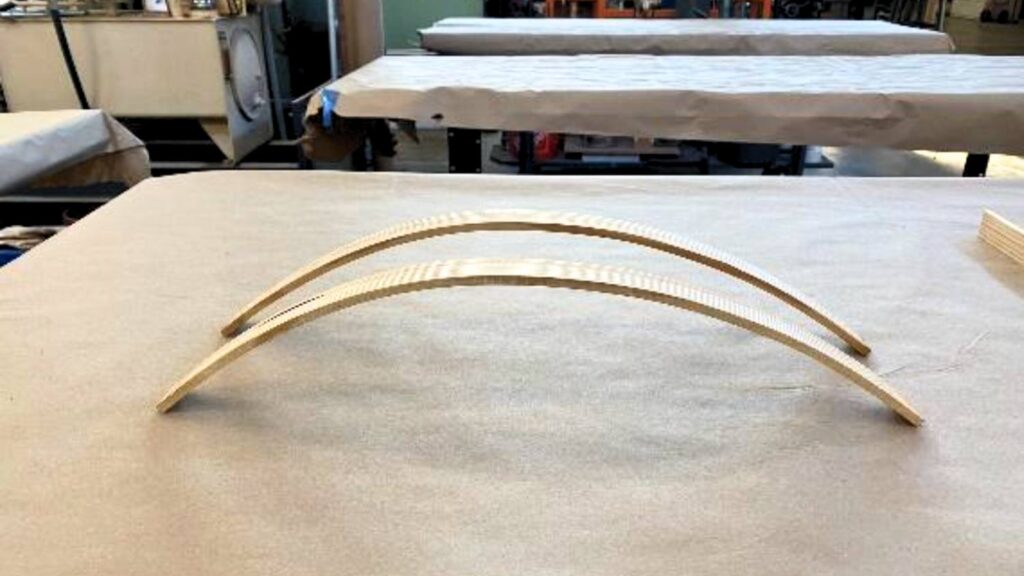Applying Thermal Modification to Steam Bent Wood

Project Title
Thermal Modification of Steam Bent Wood
Project Description
Wood is a popular and beautiful choice for many building applications but its use comes with challenges related to aesthetics and durability. Aesthetically, it can be difficult to make wood follow the shapes of arches and curves. From a durability point of view, not all wood species can be used in exterior applications, if chemicals were to be limited. By applying steam bending and thermal modification to wood, the appeal and durability of wood can be increased for use in aesthetically demanding exterior applications.
Steam bending is a century-old process used to fabricate round, curved wood elements. The process uses steam to heat up and soften the wood structure. Upon bending the wood, fracture at the cellular level is minimized. After letting the wood cool down it will retain its shape. Thermal modification increases the durability of wood products by changing the wood’s chemical structure. As a result, the wood is more dimensionally stable and much less degradable by microorganisms. Wood species with an initially low durability designation can be used in exterior applications after thermal modification.
This project will combine thermal modification and steam bending to produce an aesthetically attractive material for outdoor uses. Researchers will target the use of this material for structures related to electrical vehicle charging stations.
Principal Investigators
Frederik Laleicke
Marko Hakovirta
Rico Ruffino
Collaborators
This project includes a collaboration with an international wood modification corporation in Europe. The corporation is providing expertise and advice on thermal treatments.
Expected Outcomes
This project will benefit landowners and the wood products industry. It will also improve the sustainability of the built environment.
- Increased use of wood in exterior applications.
- Greater association of natural resources with high-tech, modern environments.
Research Methods
- Application of steam bending and thermal modification to selected wood species.
- Assessment of the stability and strength through mechanical testing.
- Utilization of the design process to develop examples of applications.
- Dissemination of project results online and at conferences.
A McIntire-Stennis supported project
About McIntire-Stennis
The McIntire-Stennis program, a unique federal-state partnership, cultivates and delivers forestry and natural resource innovations for a better future. By advancing research and education that increases the understanding of emerging challenges and fosters the development of relevant solutions, the McIntire-Stennis program has ensured healthy resilient forests and communities and an exceptional natural resources workforce since 1962.